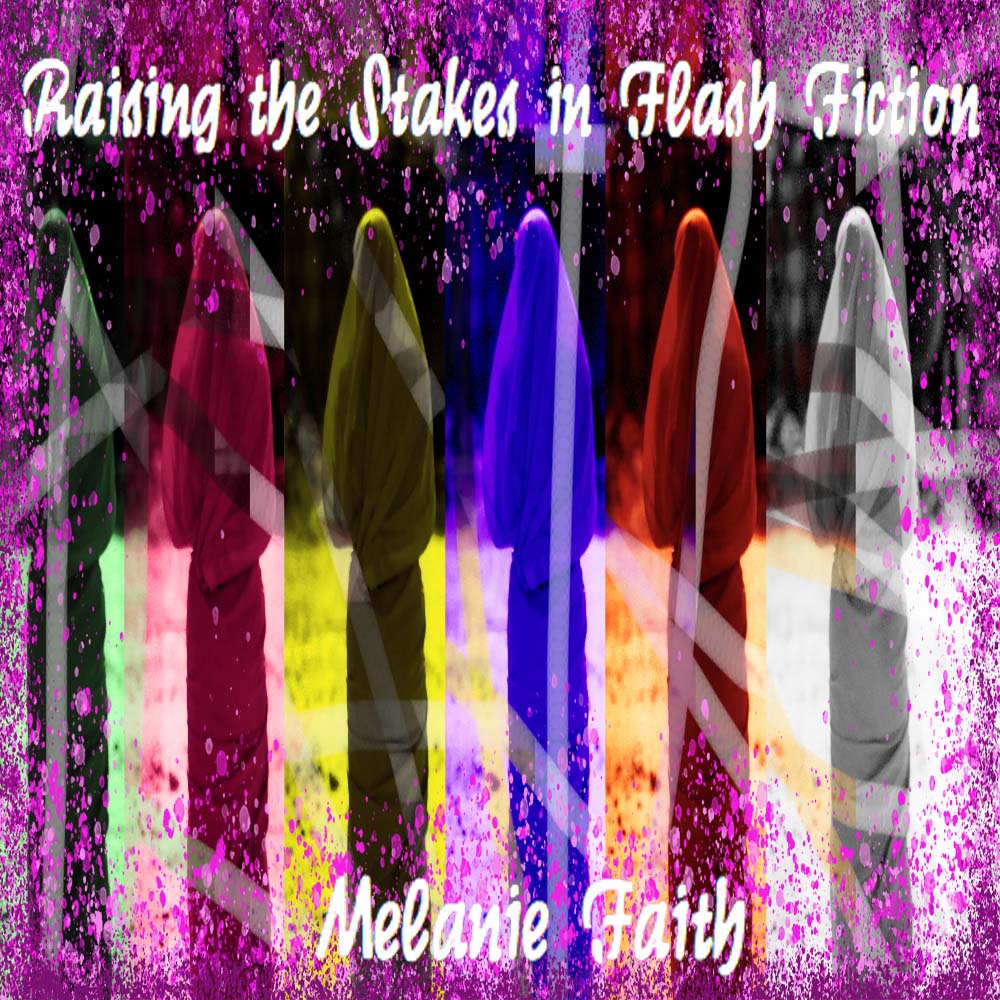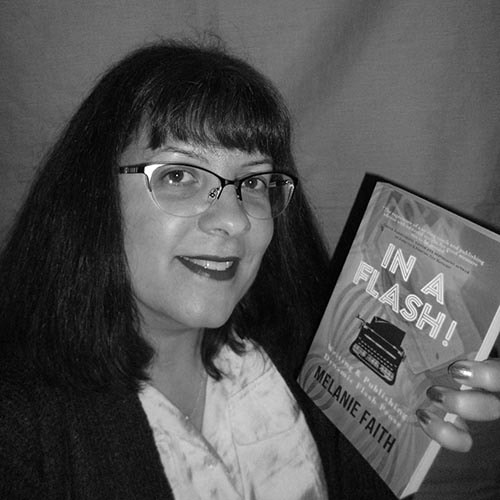NUNUM - Blending Flash Fiction & ArtRaising the Stakes in Flash Fiction by Melanie Faith
To say this is a fraught week for all of us is an understatement.
This is my eighth semester teaching the class, so I recall that this stressful learning curve is finite and part of the learning process, albeit tiresome, as we push through this week’s quicksand to a successful completion.
If, in life, a little stress can motivate necessary action, in flash fiction the stakes should be even higher. Readers need protagonists who have something big on their plates to grapple with, or they won’t bother reading. How can we ensure the conflicts are resonant while keeping our word-lengths to a minimum? Dig deeper, but not longer. Arguments are never just about what people are arguing about. Confusing? You bet, and so is human nature. Flash readers expect complexity from your characters and the situations you put them into, just as they experience complexity in their own lives and in their own (often knee-jerk) reactions. If your characters are arguing about not making the bed this morning and the only thing you include is the fact that Hank is livid about the bed covers being messy—with no deeper reasoning behind his annoyance—readers will quickly lose interest. Plenty of people don’t make their beds and the world keeps turning, after all. But what if Hank reveals a piece of his past that clues the reader into more about him and the root of this conflict? “Helen knew to make the bed as soon as we left it,” he tells Amber.
This remark and finding out that Helen was his now-deceased first wife both deepen conflict and provide an opportunity to write other problems between Hank and his new love and within Hank himself.
Play the “What-if…, will…?” game. It wouldn’t be enough for Hank to drop his Helen-always-made-the-bed bomb and then Amber just shrugs and lets it go. Something deeper has to happen. What should Amber’s next move be? You are welcome to denote what she says or thinks (some inner monologue could contrast beautifully with what she says), but in order to amplify the tension, readers want to know what she does. Jot a list of three or four “what-if…, will…?” statements
and pick one to explore. What if Amber packs her bags and leaves the room, will Hank follow her and do something to apologize? What if Amber strips the striped sheets from the bed and sets them on fire with a candle-lighter (she’s really not having a great day here and is sensitive to anything Helen), will Hank try to stop her and get burned, or will he watch her from a distance deciding maybe Helen wasn’t so perfect after all (and wondering what else is Amber capable of, for that matter)? What if Amber makes the bed with a passive-aggressive smile on her face and then slips a laxative into Hank’s orange juice, will Hank suspect it was Amber? These are just three examples for the flash, but as you can see every action from one character should have a decisive, physical action from another character.
If the conflict you set up feels too ordinary (hey, it happens), make another part of the flash a zinger. If you’ve read any of Russell Edson’s work, including his infamous “Ape,” you know that even commonplace situations (in the case of his piece: a family dinner conversation) can turn tension-fueled. The family in question isn’t just eating any old thing-- they’re about to eat the simian which the father accuses of having an affair with the mother. Maybe the setting and some of the dialogue seems ordinary, but this surreal, fantastical plot magnifies the drama and keeps readers intrigued to follow the weird circumstances. Zigzag through time.
What if Hank and Amber’s argument takes place in a space station in 2525? Or a commune in 1967? Or in 2018 in the mansion that once served as a Civil War field hospital that Amber inherited from her maternal grandmother, and Amber has reminded Hank for the past year that he’s just a visitor here? Possibilities abound to heighten narrative.
flash fiction theory, literary theory, writing craft, how to write flash fiction, how to write sudden fiction, how to write nano fiction, how to write microfictionNUNUMBlending Flash Fiction & Art
0 Comments
Your comment will be posted after it is approved.
Leave a Reply. |
AuthorNUNUM Archives
July 2024
Categories |




 RSS Feed
RSS Feed